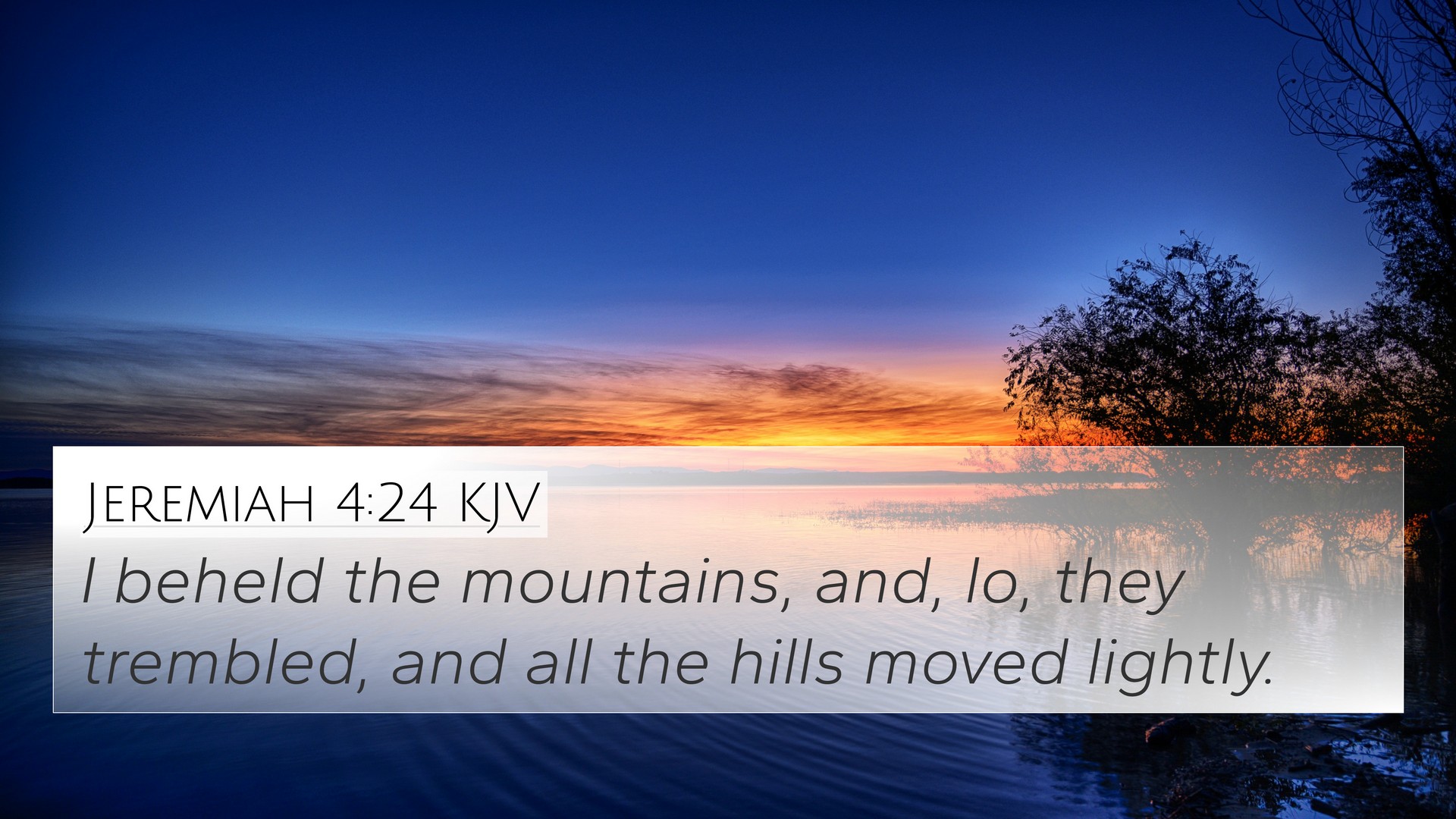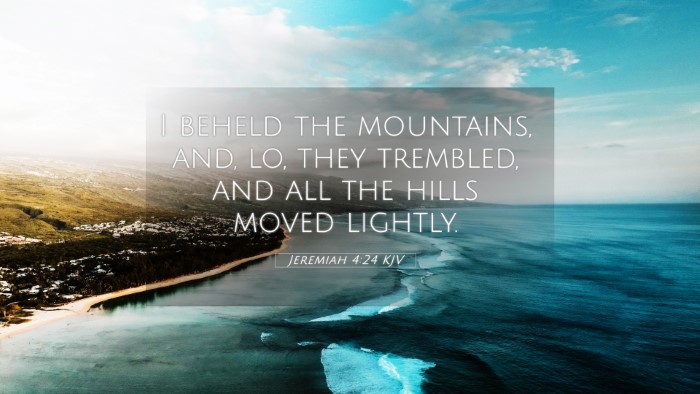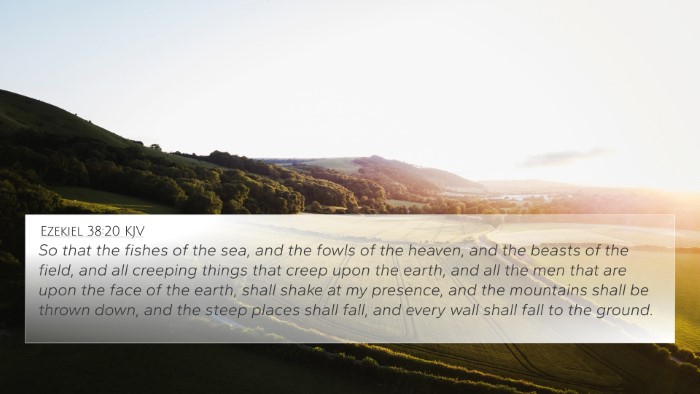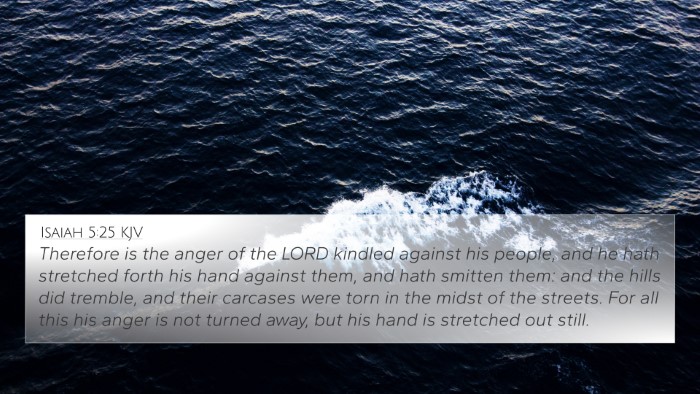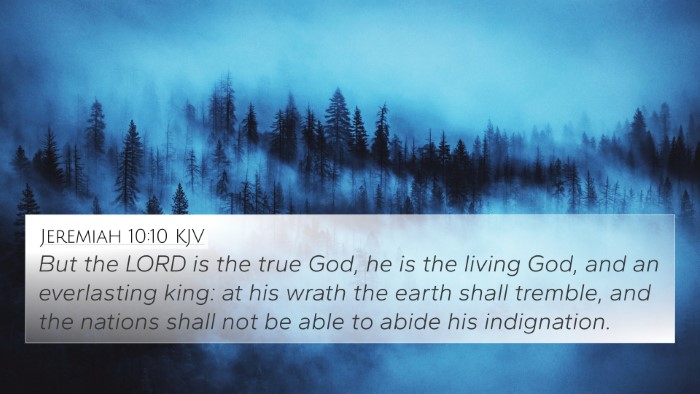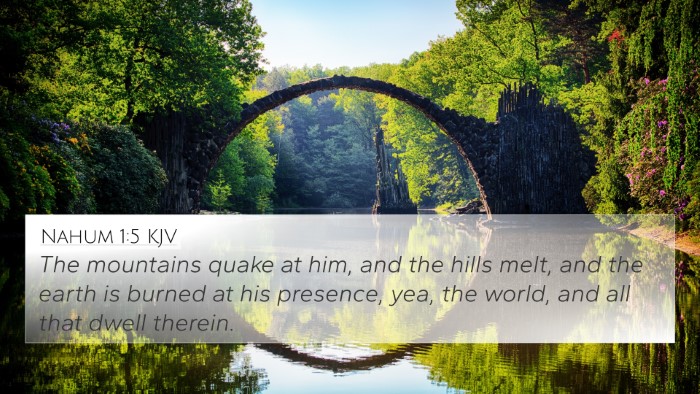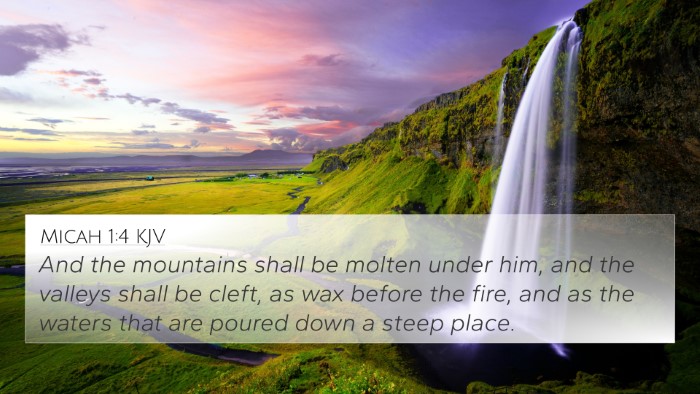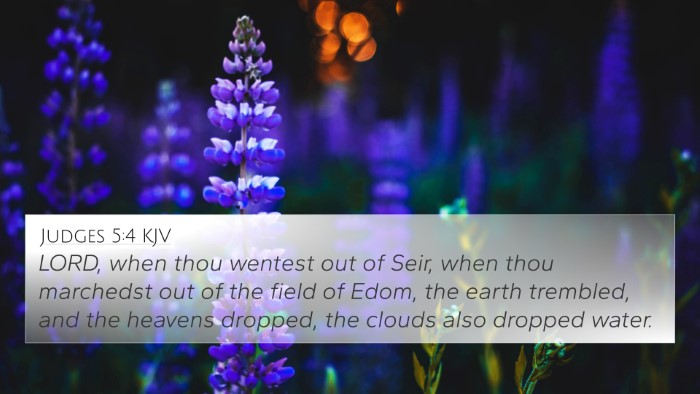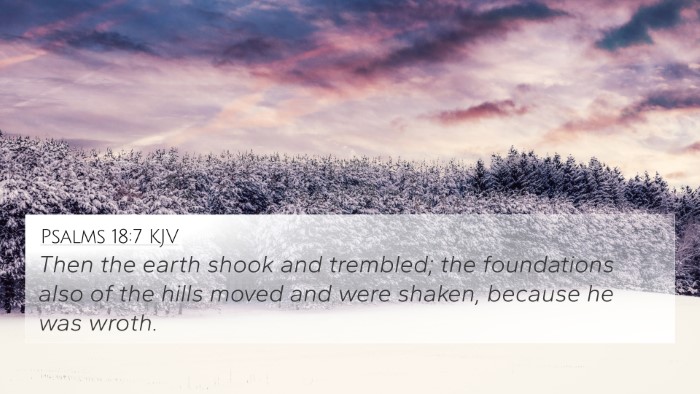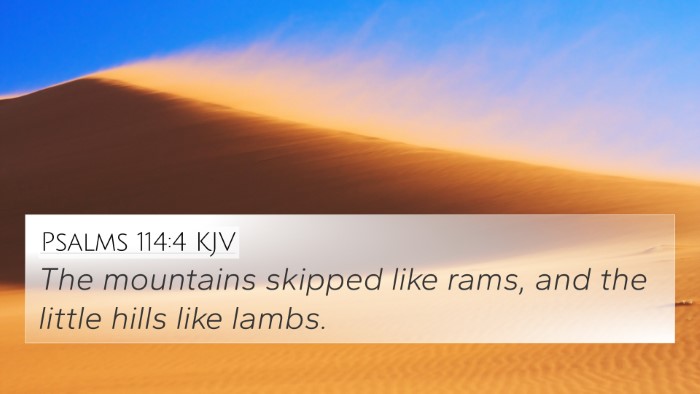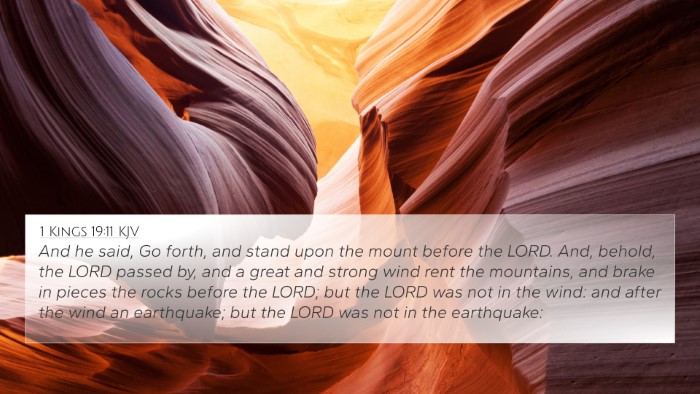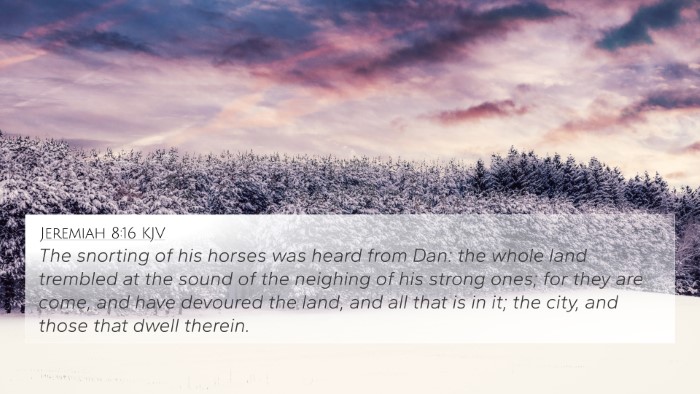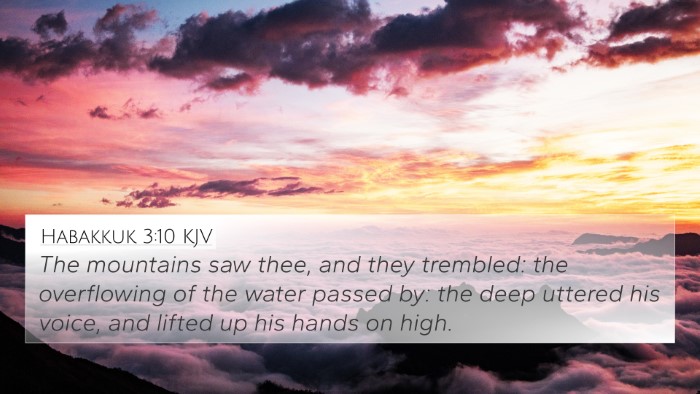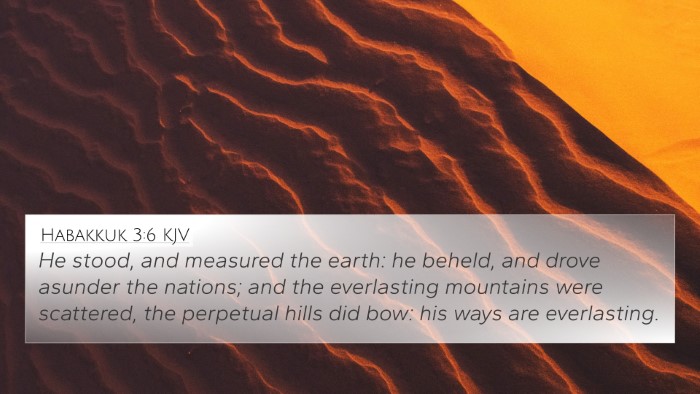Understanding Jeremiah 4:24
Jeremiah 4:24 states:
“I beheld the mountains, and, lo, they trembled, and all the hills moved lightly.” (Jeremiah 4:24, KJV)
This verse captures a vivid image of the earth responding to divine judgment, providing profound insights into God's power and the consequences of human actions.
Summary of Insights from Commentaries
Three renowned commentaries shed light on this verse, exploring its implications and connections within the biblical narrative.
Matthew Henry's Commentary
Matthew Henry emphasizes the alarming state of creation, reflecting the turmoil that sin brings to both humanity and the natural world. He perceives the trembling mountains as symbols of God's impending judgment upon Jerusalem for their disobedience, illustrating how the created order responds to divine commands.
Albert Barnes' Notes on the Bible
Albert Barnes discusses the imagery of "mountains trembling" as a representation of the devastation that will come upon Judah. He explains that such tumultuous changes in nature signify a world out of balance due to sin, supporting the theme of divine justice portrayed throughout the Bible.
Adam Clarke's Commentary
Adam Clarke expands on the verse by pointing out that the trembling hills signify an emotional and spiritual upheaval resulting from the people’s rejection of God. He underlines the universal implications of God’s judgment, reminding readers of the need for repentance and reverence to avoid such calamities.
Key Themes
Several core themes underscore Jeremiah 4:24, including:
- Divine Judgment: The chaotic imagery reflects the consequences of sin and the seriousness of divine retribution.
- Creation's Response: Nature reacts to human actions, illustrating the interconnectedness of all creation with God's will.
- Urgency for Repentance: A call for repentance is evident, as the verse underlines the danger of ignoring God's warnings.
Cross-References to Jeremiah 4:24
To fully grasp the implications of Jeremiah 4:24, it's beneficial to explore related scriptures. Here are some essential cross-references:
- Isaiah 13:13: “Therefore I will shake the heavens, and the earth shall remove out of her place...” - This verse echoes the theme of nature's upheaval in response to divine judgment.
- Hebrews 12:26: “Whose voice then shook the earth: but now he hath promised, saying, Yet once more I shake not the earth only, but also heaven.” - Here, the shaking of the earth emphasizes God’s ultimate authority.
- Micah 1:4: “And the mountains shall be molten under him, and the valleys shall be cleft...” - Similar imagery is used here to depict God's intervention in human affairs.
- Matthew 24:7: "For nation shall rise against nation, and kingdom against kingdom: and there shall be famines, and pestilences, and earthquakes, in divers places." - This speaks to the signs of the times and nature's response to calamity.
- Revelation 6:12: “And I beheld when he had opened the sixth seal, and, lo, there was a great earthquake...” - A vivid portrayal of catastrophic events in the last days connects to the spiritual implications of sins.
- Psalm 46:2: "Therefore will not we fear, though the earth be removed, and though the mountains be carried into the midst of the sea;" - This poem emphasizes the unshakeable nature of faith amidst chaos.
- Amos 8:8: "Shall not the land tremble for this, and every one mourn that dwelleth therein?" - Amplifying the thematic resonance of lament over sin and judgment.
Connections and Comparisons
In understanding Jeremiah 4:24, one can observe the parallels between Old Testament prophecies and New Testament revelations regarding God's judgment and the renewal of creation. Notable connections include:
- Contrast between Prophetic Warnings and Fulfillment: Prophetic texts warn of judgment, while fulfillment is seen in Christ’s teachings of repentance.
- Thematic Exploration of Nature and Spirituality: Both testaments highlight how spiritual disobedience influences the physical world.
- Interconnectedness of Sin and Creation’s Groan: Romans 8:22 discusses how creation suffers due to humanity’s sin, aligning with the imagery in Jeremiah.
Utilizing Cross-References for Deeper Study
For those interested in delving deeper into scripture, tools for Bible cross-referencing can greatly enhance understanding. Utilizing a Bible concordance or a Bible cross-reference guide can help identify thematic links, providing a path toward a comprehensive study of biblical texts.
This approach fosters an enriched Bible study experience, enabling us to uncover connections between verses and grasp the overarching narrative of scripture effectively.
Conclusion
Jeremiah 4:24 serves as a stark reminder of the consequences of sin and the reality of God’s judgment. By understanding this verse within the broader framework of biblical texts, we can see the urgency for obedience and the response of creation to divine authority. Cross-referencing related verses encourages a profound appreciation for the continuity and depth of biblical themes.
